Choose from a broad selection of workshops delivered by trust leaders and sector experts. Delegates can favourite workshops to create their own personal conference schedule via the Annual Conference app; details will be sent ahead of the conference by email.
Programme details are subject to change.
Discover sector-wide insights from IMP Software’s 2025 MAT Financial Benchmarking Report, published in partnership with CST. Created from the budget assumptions of 274 trusts and 3,300+ schools, this session will examine key trends in the report. IMP Software’s Chief Executive Will Jordan will also explore the varied approaches trusts are taking to navigate budget challenges over the medium and long term, including staffing ratios, GAG and reserves pooling, and special schools, with a deep dive into the size and shape of multi-academy trust finance functions.

Co-Founder, IMP Software
Will Jordan FCCA has worked with academies and multi academy trusts since the first ‘phase two’ academies opened in September 2010. As a qualified accountant and financial technology specialist, Will now works with established multi academy trusts to strengthen their financial planning and reporting processes by replacing legacy software with multi academy trust-specific, agile tools.
Fluency in speech and oracy underpins learning, confidence, and agency – but how can their development be embedded across a whole trust? Georgina Cook from Renaissance will frame the national challenge, sharing findings from their recent research. Leaders from the Cabot Learning Federation will then share how they have embedded a framework that has evolved in the last three years from 22 to 36 schools of diverse contexts, culminating in a case study from a primary Centre of Excellence. Attendees will benefit from an exploration of what works, where challenges lie, and how to sustain improvement.

Education Director, Cabot Learning Federation
Susie is part of Cabot Learning Federation's executive team, supporting school improvement across the trust. She is responsible for a number of strategic areas including SEND, safeguarding, and diversity, equity, inclusion and belonging.
Prior to joining the executive team, Susie was the principal designate of a new base need school, and she previously spent a decade working and leading schools in Bristol.
Susie is highly experienced in leading teacher professional development, leadership training and is passionate about learning and leadership at all levels. She also carries out a range of roles across the sector including leadership of specific strands of work across local authorities, trust, and sector networks, including DfE advisory groups. Susie is also a Fellow of the Chartered College.

Deputy CEO, Cabot Learning Federation
Sally Apps is Deputy CEO of the Cabot Learning Federation - serving 18,000 students aged 2-19 in 36 mainstream, alternative provision and special schools in the South West. As education lead she holds responsibility for educational performance and school improvement. Sally has worked with the Department for Education in different capacities, from being a member of the Advisory Board to Education Lead in the South West SEND regional board. She co-chairs the education expert community for the Queen Street Group as well as supporting governance in other trusts. She was a Commissioner on the National Oracy Commission in 2024 and continues to hold a passion for developing oracy to enable better outcomes for all learners, particularly those experiencing disadvantage. She is a Fellow of the Chartered College of Teaching and contributes to a range of professional networks and communities for school improvement, including that of the Confederation of School Trusts.

Literacy & Language Product Specialist, Renaissance Learning UK Ltd
Cecilia brings over 16 years of experience in education, including 14 years as a primary teacher across both maintained and independent sectors. Now a Product Specialist at Renaissance Learning, she supports schools in using assessment data and practice tools to drive pupil progress and improve outcomes. With a strong background in teaching and leadership, Cecilia bridges the gap between classroom practice and educational technology, helping schools make confident, evidence-based decisions.

Associate Executive Principal, Cabot Learning Federation
Craig Jones is an Associate Executive Principal for the Cabot Learning Federation (CLF). He currently leads Haywood Village Academy and holds leadership responsibilities for two more primary schools in the trust. Craig provides strategic improvement as part of the Cabot Learning Federation executive team, is a member of the CLF SCITT Five Counties board, and offers coaching for leaders undertaking their NPQH and NPQEL courses.
Prior to joining CLF, Craig was a headteacher in Gloucestershire. His career in education spans 25 years, during which he has held teaching and leadership roles in nurseries, primary schools, and an all-through school across the Bristol, Kent, and internationally in Dubai.
Whilst many trusts instinctively reach for policies as their first line of defence in governance, this session explores how over-prescriptive, rule-based approaches may fail for risk-aware innovation like AI. Through a compelling pre-mortem scenario, you'll be challenged to think critically about intelligent AI adoption, emphasising the necessity of building trust and engaging stakeholders from the start. Nick and Claire will guide you through six steps towards effective AI governance to help your trust flourish instead of flounder.

Legal Director, Browne Jacobson
Claire specialises in data protection, AI, information governance, and freedom of information for education clients at Browne Jacobson LLP. Her extensive experience leading a data protection officer service as well as experience working as a school business manager and as a local academy board governor equips her with a profound understanding of school challenges. Claire received the European Picasso 'Champion' Award for her ability to support and promote a positive information governance culture within schools, and the important work done by school staff to protect children's personal data. Claire is also a co-author of the IRMS Records Management Toolkit for Schools and Academies and is known for her effective public speaking and advocacy for data protection importance in education. Additionally, Claire's expertise extends to AI governance and edtech. This experience and knowledge makes her an invaluable resource for educational institutions.

Partner, Browne Jacobson
Nick is national head of the Browne Jacobson education team, an executive coach and a member of the firm’s board. Recognised as a leading expert in education by The Legal 500 and Chambers for over 10 years, Nick specialises in corporate and governance advice in the education sector.
He has significant experience of advising executive teams and boards in the social housing, corporate and, for well over 10 years, education sectors. His clients include some of the largest school trusts in the country. Over the last 10 years, Nick has contributed regularly to the debate on key issues impacting the sector. He also has excellent relationships with sector bodies such ASCL, CST and NGA.
What drives teacher impact on pupil outcomes? Do consistently high-performing teachers use distinct classroom practices, follow specific training pathways, or experience a stronger sense of belonging? This session explores what the evidence tells us about these questions. Drawing on emerging analysis from the National Institute of Teaching’s founding trusts, we’ll examine how teacher impact evolves over time and what patterns are beginning to emerge. Attendees will gain early insights from rich, trust-level data and consider what this means for practice, development, and policy in schools.

Director of Research and Development, Evidence Based Education
Professor Rob Coe is Director of Research and Development at Evidence Based Education and Senior Associate at the Education Endowment Foundation. A former Professor of Education and secondary maths teacher, he is a researcher in educational assessment, evaluation and evidence-based practice, working with teachers and schools to connect evidence and practice.

Appropriate Body Lead (Star Teaching School Hub), Star Academies
Luke is the Appropriate Body Lead for the Star Teaching School Hub (Birmingham South), as well as a part-time Doctorate in Education (EdD) student at the University of Warwick. Luke is a qualified secondary modern languages teacher with nearly 15 years' experience in diverse educational roles. He has taught and led in different schools and organisations within the sector across the West Midlands. His career and research focus has centred on teacher recruitment, early career teacher development and teacher support. In addition to his work and study, Luke is also the chair of governors for a local authority maintained primary school in Warwickshire.
Luke is a member of the Expert Working Group for the Teaching improvement through data and evaluation (TIDE) project (2024-2028), funded by the Nuffield Foundation, led by the National Institute of Teaching (NIoT).

Director of Teaching, Star Academies
Emma is responsible for the teaching strategy across the Star Academies schools. Having worked at Star for over six years, she has a passion for serving the schools and communities within the Star family. She firmly believes the best way to guarantee that every pupil has the best education, is to ensure all teachers have high quality professional development. This professional development must be bespoke, which is why Instructional Coaching is the bedrock for developing expert teachers and support staff at Star.
Emma joined Star after being a senior leader/head of school, at a large multi academy trust for almost a decade.
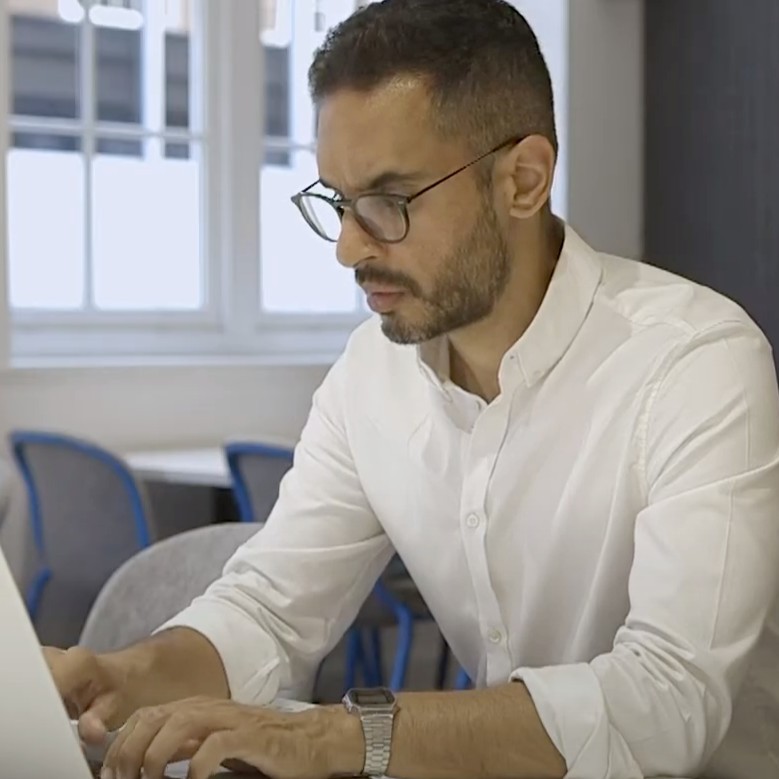
Senior Research Associate, National Institute of Teaching
Raj is a Senior Research Associate at the National Institute of Teaching, and also currently teaches maths and economics at a comprehensive secondary school in Hackney. He has led education research teams at Nesta and the Behavioural Insights Team and has a PhD in Economics from the University of Bristol.
This session shares early insights from a major research project led by Woodland Academy Trust which explores how AI tools are being used to support lesson planning across five primary schools. Pursued as part of a broader digital transformation strategy, the project has also contributed to external accreditation and recognition, including national award nominations. These frameworks have helped drive the project forward by establishing a shared vision, identifying measurable outcomes, and galvanising staff engagement across diverse settings. The session reflects on how this approach to innovation is helping to support every learner, particularly those with additional needs, while also enhancing professional agency and wellbeing for teachers.

Founding Director, ICT Evangelist
Mark is a globally respected expert in education, technology, and digital strategy. A former senior leader with over 20 years in the classroom, he now works with schools, trusts, and edtech organisations worldwide to support impactful, evidence-informed use of technology. Mark advises schools and edtech organisations on responding to national frameworks and regulatory expectations, with particular expertise in safeguarding, AI, and digital strategy. He is the author of best-selling books including The EdTech Playbook, co-founder of the Global EdTech Awards, and Head of Education at NetSupport. He is also a Founding Fellow of the Chartered College of Teaching and sits on the BCS Schools and Colleges Committee.
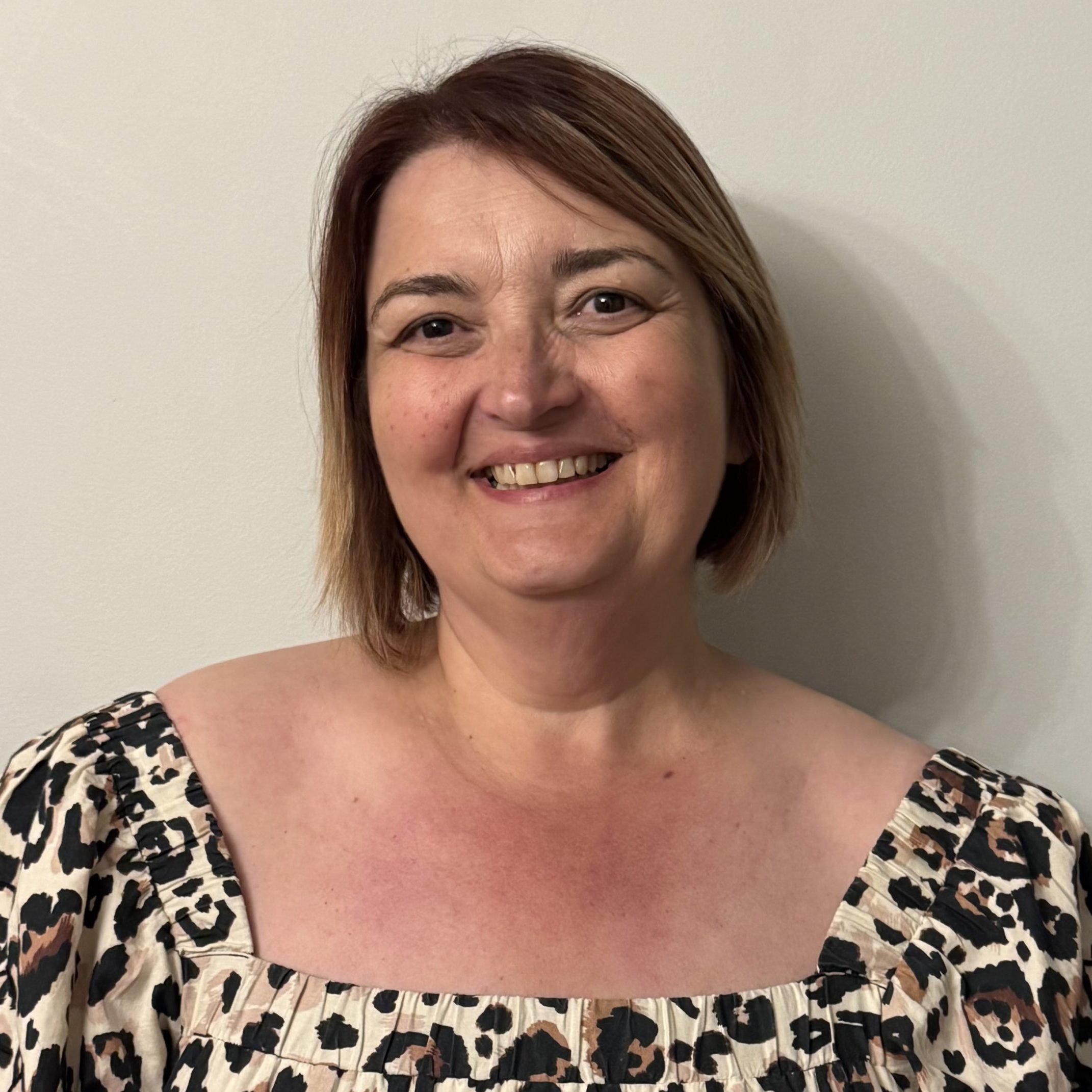
Director of Education, The Woodland Academy Trust
Julie leads on school improvement, curriculum development and digital transformation across five primary schools in Bexley and Kent. With over 25 years’ experience in education, including 18 years in leadership roles such as headteacher, executive headteacher, and school improvement advisor, she has a strong commitment to inclusion and innovation.
Julie specialises in AI and Universal Design for Learning (UDL), developing a trust-wide pedagogical framework that led to one school being named an Apple Distinguished School and the Trust becoming an Apple Regional Training Centre.
Julie holds an MA (with distinction) in Educational Leadership and the NPQEL. She was awarded a Silver Award for Digital Innovation in the 2025 Pearson National Teaching Awards in recognition of her pioneering work.
How can trusts and their schools establish themselves as civic anchors in their communities? In this session we will learn about Strive Together’s ‘cradle to career’ model which has improved outcomes for young people across the US. With decades of experience in working with communities to apply the model, it has been adapted over time and continues to do so to meet pupil and family needs. Strive Together brings together a range of partners to address complex challenges, supported by a local team. Together we’ll explore learnings from the model and how it can be applied within trusts of all sizes.

President and CEO, Strive Together
Jennifer Blatz is the president and CEO of StriveTogether, a national nonprofit working in about 70 communities across the United States to put millions more young people on a path to economic mobility.
At StriveTogether, Jennifer was instrumental in launching the national Cradle to Career Network and creating the StriveTogether Theory of Action™. She led the development of the organisation’s current strategic plan with a bold vision: to put 4 million more young people on a path to economic mobility by 2030. Under Jennifer’s leadership, StriveTogether was named a global Social Innovator of the Year by the Schwab Foundation for Social Entrepreneurship, an honor she accepted at the 2024 World Economic Forum.
Before leading StriveTogether, Jennifer was a founding member of StrivePartnership, serving Cincinnati and Northern Kentucky.

Vice President, Network Impact, StriveTogether
Bridget leads StriveTogether’s strategy to support Cradle to Career Network members to accelerate their progress through the Theory of Action™ toward better and more equitable outcomes for young people. This includes proactive and responsive network supports, impact investment and a comprehensive network member experience.

Executive Director, Reach Foundation
Mei is an Executive Director at the Reach Foundation and oversees the charity's place-based initiatives in Feltham, Hounslow, which includes the Feltham Convening Partnership: a collective impact, systems change initiative to improve long-term outcomes for babies, children and young people across a range of indicators. Prior to joining the Foundation in 2019, Mei was a primary headteacher and secondary history teacher.

Executive Director, Reach Schools
James Townsend is an Executive Director at the Reach Foundation, where he leads the Cradle to Career Partnership and Reach's leadership programmes for aspiring Head Teachers and and Trust CEOs. James has previously held leadership roles at Teach First and STiR Education, where he helped found and grow the organisation to reach over 200,000 teachers globally. He started his career as a history teacher in east London.
Organisations need to be safe and secure in order to flourish and, in a year of high-profile cyber-attacks, the need to protect school and trust data has never been more critical. In this session we’ll learn about today's cybersecurity landscape and hear from a trust leader on real-world experience of managing a significant trust cyber-attack, offering candid insights and key lessons learned. You’ll leave with practical strategies to strengthen your cyber defences and protocols on tight budgets. Achieving bank-level security with school-level resources may feel like mission impossible, but it’s far from it. Where: Hall 10a

Head of Resilience and Security, Lloyds Bank – Corporate & Institutional Banking
Giles has held senior resilience, cyber, information security, and data privacy positions in retail, commercial and investment banking, insurance, and consulting. He has a masters degree in engineering from Imperial College London, started his career with JPMorgan Chase, and most recently joined Lloyds Banking Group in 2015 from Deloitte.
He has been a member of several collaboration cyber groups including the UK Government’s Department of Science Innovation and Technology Cyber Expert Advisory Group, the University of Southampton Cyber Advisory Board, TheCityUK Cyber Resilience Working Group, and currently sits on the Financial Conduct Authority Cyber Collaboration Group for Investment Management.

CIO, Future Academies
Andy Meighen is the Chief Information Officer at Future Academies Trust. Since joining just over two years ago he has been implementing an IT strategy to centralise, standardise, consolidate and automate systems and processes in all 10 Academies within the trust. A ground up redesign of systems with an emphasis on security has now been completed. This is based on a secure by design network, zero trust and a move of all systems to the cloud. Previously, Andy worked as a consultant with a number of trusts as well as working with Arbor migrating schools from SIMS.
Before that, Andy worked as IT Director for Harris Federation, leading the expansion from 19 to 50 Academies. At Harris, he successfully led the recovery of the IT systems after a serious ransomware attack and has taken the many lessons learnt from that experience into future engagements.

Director of Education, Lloyds Bank PLC
Phil joined Lloyds Banking Group in 1987 and has supported the education sector through various relationship and leadership roles for over 20 years. He currently oversees the national education offering for schools, leading a team of 14 dedicated specialist education relationship managers who work with eight out of 10 academy trusts. Phil drives the ongoing development and delivery of products and services to meet the needs of schools and academy trusts in a rapidly evolving landscape. With a deep understanding of strategic planning, academy trust banking structures, efficiencies, and financial risk, Phil is committed to ensuring Lloyds Bank continues to add value in supporting schools. He believes in traditional service values, enhanced by the latest digital innovations to reduce trust risk and improve central oversight and control - essential for growing strong multi-academy trusts. Phil works closely with key sector associations such as CST and ISBL, as well as fellow education professionals.
In this session, we will explore Ormiston Academies Trust smartphone free approach. Drawing on both research and real-world implementation across a large trust (45 schools including specialist, AP, primary and secondary), we will examine the rationale and evidence underpinning phone-free policies, and their impact on a wide range of school and pupil outcomes. We’ll learn about the key challenges encountered, and speakers will reflect honestly on what they wish they had known from the outset. Whether you’re considering a similar policy or refining one already in place, this session offers practical insights and lessons learned from leading change at scale.

National Director of Learning, Ormiston Academies Trust
Jen is National Director of Learning at Ormiston Academies Trust where she oversees professional development for 5,000 staff. She has spent the last 15 years grappling with the evidence base about how to enable effective teacher and leader development. Prior to that she spent nearly a decade working as a primary teacher in schools in Manchester.

Principal, Ormiston Academies Trust
This interactive session introduces Edurio’s new Listening Maturity Framework and helps delegates move from collecting feedback to embedding listening in trust leadership. Participants will benchmark their current practice, gain clarity on strengths and gaps, and hear real-world examples from trust leaders who have made tangible progress. Expect practical ideas and space to reflect with peers and identify a concrete next step to take back to your trust. Attendees will leave with a clear sense of where they are on the journey to becoming a true listening organisation and how to accelerate their next phase.

Founder and CEO, Edurio
Ernest is the CEO of Edurio, England’s leading stakeholder feedback platform for schools and school trusts. He is a frequent public speaker both in the UK and internationally on effective use of stakeholder feedback in schools and has published extensive research on stakeholder feedback, staff wellbeing and school improvement.
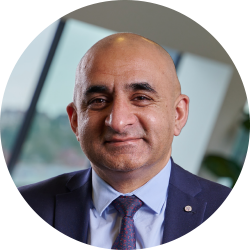
CEO, Nova Education Trust
Ashfaq was previously vice CEO of the Nova Education Trust with particular responsibility for Toot Hill School, Newark Academy, The Suthers School, The Garibaldi School, Meden School and Melton Vale Sixth Form College.
Ash was also a lead Ofsted inspector before becoming the CEO of Nova Education Trust, is a National Leader of Education and worked closely with DfE officials in implementing the national strategy around teacher recruitment and retention.
Ash is currently vice chair of The Priestley Academy Trust (a primary school trust) and the chair of the school improvement committee.

Executive Director, LEO Academy Trust
Alison Day serves as an Executive Director at LEO Multi-Academy Trust, drawing on 40 years of service in primary education, including 17 years as a headteacher. Before joining the executive team in 2020, Alison led the successful amalgamation of two schools in South West London, creating a substantial four-form entry primary school—one of 14 within the LEO Academy Trust.
Working collaboratively with fellow Executive Directors, Alison drives school improvement, growth, and development. She has cultivated a robust coaching culture and implemented comprehensive leadership programmes across the trust, promoting the LEO people strategy. Her current remit includes shaping the trust's growth strategy, with a keen focus on onboarding new schools and integrating technology and AI across both educational practices and professional services. These initiatives underscore LEO’s commitment to preparing pupils and staff for the future.
This workshop will explore three phases of trust maturity at a system level, and how signs are emerging of a fourth model involving AI, automation, and purposeful partnership, leading to strategic, scalable, high-performing ways of working (from striving to thriving). Join this session to assess your trust’s operational maturity, identify barriers, explore leading practices, and take practical steps to building a flourishing, future-proofed operational model.

CEO, Summit Learning Trust
Vince Green is the Chief Executive Officer at Summit Learning Trust from September 2022. He joined the trust in January 2021 as Education Director where he provided support and challenge for its secondary and post-16 phases. Prior to joining Summit, Vince was regional education director and executive principal at a large multi academy trust. Before this he was the Principal of Bristnall Hall Academy for five years, the highest performing secondary provider within its local authority and trust. Vince started his teaching career in Sendai, Japan and has held a variety of leadership roles in the West Midlands in rapidly improving schools.

Director, CJK Associates

Deputy Chief Executive, The Thinking Schools Academy Trust
As Deputy Chief Executive, Lee is responsible for the strategic operational functions of The Thinking Schools Academy Trust. He is an experienced business manager and finance director with over 15 years of expertise, supporting both primary and secondary schools. During his time as a senior leader, he has been deployed in a number of trusts that have required support or intervention and was recognised in the 2020 Queens Birthday Honours for his services to education.
In addition to his business management experience, Lee is a fellow at the Association of Certified Chartered Accountants (ACCA), and has completed a PGCE in business management. Through his work he has become well versed in some of the challenges that face the education sector in areas that include: financial planning; HR management; legal issues; site and; IT strategies. He was awarded fellow status by the Institute of School Business Leaders (ISBL) in 2021.
In this session, Tom will explore the policy landscape on inclusion and the opportunity we have to create a more equitable and inclusive school system, including through reforming our approach to special educational needs and disabilities (SEND). He will share insight from his work as chair of the DfE’s Expert Advisory Group for Inclusion over the last 12 months and then in conversation with Leora Cruddas, reflect upon the importance of both national policy (top-down) and sector leadership (bottom up) through this programme of reform.

CEO, Ormiston Academies Trust, and Chair, DfE‘s Expert Advisory Group for Inclusion
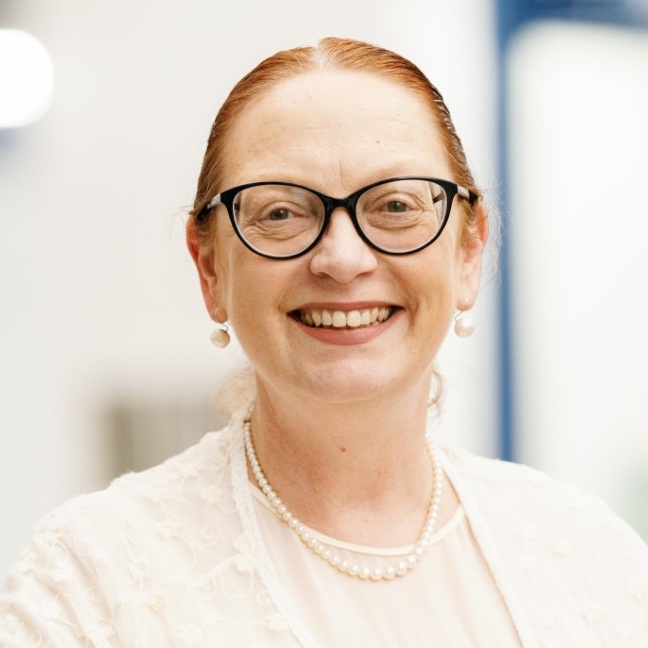
Chief Executive, CST
Leora Cruddas is the founding Chief Executive of the Confederation of School Trusts – the national organisation and sector body for school trusts in England. She has advised successive governments and sits on several Department for Education advisory bodies. She was recently the vice chair of the Head Teacher Standards Review Group, a member of the external advisory group for the Schools White Paper, SEND National Implementation Board and the Regulatory and Commissioning Review.
Prior to founding CST, she was Director of Policy and Public Relations for the Association of School and College Leaders. Leora has six years of experience as a director of education in two London local authorities. She is a visiting professor at UCL Institute of Education. Leora was made a CBE in the 2022 New Year’s Honours.
What does impactful CPD look like across a trust? This session explores key sector challenges and how leaders can look to build consistent, high-quality teacher development across varied contexts. Sufian Sadiq of Chiltern Learning Trust shares candid reflections on the realities within his trust and speaks to the roadmap shaped under his leadership. You’ll gain practical insights into building the foundations for trust-wide CPD that raises teaching standards and drives meaningful, sustainable improvement.

Director of Teaching School, Chiltern Learning Trust
Sufian Sadiq is the Director of Teaching School at Chiltern Learning Trust, with responsibility for overseeing two regional hub areas in the Southeast of England. Chiltern Teaching School are one of the largest providers of CPD to the sector nationally. He is a passionate activist within the educational landscape around race, equity and inclusion. He is a Fellow and Board Member of the Chartered College of Teaching, as well as a Fellow for the Chartered Institute of Educational Assessors. He plays an active role in numerous charitable organisations as a trustee and holds key governance roles within educational organisations.

Head of Product Management, Hachette Learning
In her role at Hachette Learning, Gemma leads the development of Hachette Learning Academy. The academy is a professional development platform designed to support school improvement through cutting-edge adaptive online courses; and a range of bestselling professional development publications (formerly under the John Catt brand).
With more than 20 years’ experience in educational publishing and product development, Gemma has a deep understanding of the challenges schools face. She has a strong track record of creating user-focused resources that equip educators to lead sustainable, meaningful change in teaching and learning. Her work reflects Hachette Learning’s mission: to make it easier for every learner to fulfil their unique potential by empowering those who teach them.
Online harms are evolving rapidly, from AI-driven risks to image-based abuse and sextortion. This session, facilitated by RM, will equip leaders with the knowledge and questions they need to safeguard their communities. Drawing on insights from the Internet Watch Foundation and trust-level safeguarding expertise from Oasis Community Learning, the panel will share critical data, practical resources, and strategic actions to strengthen online safety across schools. Expect to be challenged with the critical questions that every senior leader should be asking of their safeguarding teams. Delegates will leave with clear takeaways to challenge and support their safeguarding teams.

National Director of Safeguarding and Wellbeing, Oasis Community Learning
Jon originally trained as a nurse specializing in adolescents with life limiting illness before moving to become an advisor to a large strategic health authority and a commissioner in a primary care trust. He worked briefly as a specialist advisor on two World Health Organization projects before becoming the lead for early help and multi-agency working in a large local authority.
He became an education safeguarding advisor 16 years ago managing the support offer to 530 schools and for the past six years has worked as the National Director of Safeguarding & Mental Health for the Oasis Trust.
He qualified as a PhD in Education Safeguarding at Liverpool Hope University and has recently published a book on managing sexting in education. He acts as a mentor to five young men starting out in industry ensuring that they develop to their full potential. In his spare time, he is a voluntary youth worker. When (if) he ever relaxes he is a keen fan of Korean dramas (though must use subtitles).
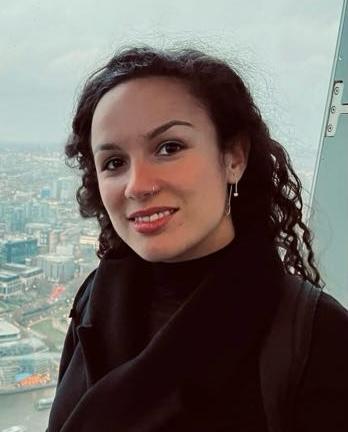
Senior Campaigns & Communications Officer, Internet Watch Foundation
Angela is the Senior Campaigns and Communications Officer at the Internet Watch Foundation, the UK hotline to report and remove child sexual abuse images and videos online. Angela coordinates the awareness raising initiatives at the IWF, as well as manages the social media presence of the organisation. She is a communications professional with experience in corporate communications within the third, agency, and private sectors.

Digital Strategy Consultant, RM
Dan Gerhardi is a Digital Strategy Consultant at RM, working with schools and trusts to develop and implement technology strategies that help them meet their goals. He has worked in a variety of technology roles supporting education and wider public sector clients.
As school trusts grow, managing resources efficiently becomes crucial to ensuring both operational success and financial responsibility. This workshop will explore strategies for effective energy management, tailored to the unique needs of expanding trusts. The panellists will discuss the learnings from their trust’s growth journey, from six schools to over 30. The conversation will cover practical solutions, and contractual risks and freedoms towards achieving long-term savings while supporting environmental and financial goals. You'll leave with actionable insights to balance growth with sustainability, to secure a more efficient and eco-friendly future for your schools.

Director, Ginger Energy
With two decades of experience in the UK energy industry working for suppliers, consultancies and representing customers, I'm well versed in the intricacies and peculiarities of this complex market. As Director of Ginger Energy, I'm passionate about working for our public sector clients to secure the best procurement solutions and lived experiences for their energy needs.

Director of Estates, Meridian Trust
As a Director of Estates with over 13 years of experience in the education sector, Martin is responsible for overseeing the strategic management and operational efficiency of 31 school sites, ensuring a safe, sustainable, and high-quality environment for both students and staff. With expertise in facilities management, health and safety, and major capital projects, he is dedicated to delivering effective solutions that enhance learning spaces and drive value for the community.
Despite modest improvements in pupil attendance across England, absence rates remain stubbornly above pre-pandemic levels. Drawing on the latest insights from FFT’s Education Datalab and Attendance Tracker, we’ll unpack the complex landscape of school attendance in 2024/25 to support trust leaders to navigate the challenge with a clear and confident data-informed approach. We’ll explore emerging patterns across primary and secondary phases and examine the implications through a leadership lens. You’ll gain a deeper understanding of the drivers behind the trends, the policy levers available to address persistent absence, and how to use attendance data to inform targeted interventions and resource allocation.

Head of Partnership, FFT

Vice-CEO, Fierté Multi-Academy Trust
Tony Hand is the Vice-CEO of the Fierté Multi-Academy Trust and a Trustee. He has spent over a quarter of a century in education and was formerly a head teacher of two schools including a large primary school for 15 years. In addition, he has held two executive headships supporting schools during periods of turbulence and previously carried out the role of local leader of education. Alongside colleagues, Tony set up the Tamworth Primary Consortium bringing headteachers together to serve the best interests of children and families in the locality; he has also chaired this organisation at various intervals. He fervently believes that school to school support and collaboration presents a unique opportunity to release and maximise the potential of all children whatever their needs or backgrounds. His desire to inspire all to excellence extends beyond children to include the staff, parents, governors, and other stakeholders that form part of the extended Fierté family.
This session will guide you to think strategically about the building blocks for mainstream settings in which children with SEND can flourish, such as workforce design, staff training, enhanced provision, curriculum, and parental engagement. We’ll learn about the practical strategies suitable for leaders at every stage of the SEND journey, combined with time for reflection with colleagues. You will leave inspired to review, improve or fine-tune your whole-trust approach to supporting children with SEND.

National Director of Learning, Ormiston Academies Trust
Jen is National Director of Learning at Ormiston Academies Trust where she oversees professional development for 5,000 staff. She has spent the last 15 years grappling with the evidence base about how to enable effective teacher and leader development. Prior to that she spent nearly a decade working as a primary teacher in schools in Manchester.

Director of Impact, Ambition Institute
Anne is Director of Impact at Ambition Institute. Anne’s previous roles include Priority Project Lead: School Inspection Policy at Ofsted and National Director of Whole School SEND, as well as an earlier career as a music teacher, with extensive experience in schools and education. She has significant expertise in special educational needs and has advised the Department of Education on several occasions, most recently as a member of the 2025 expert group on inclusion in mainstream education.
What does a commercially minded approach to financial strategy look like in a not-for-profit, education-led environment? In this session, trust speakers will share how they have built sustainable income streams through value-led traded services, procurement innovation, and purposeful partnerships. They’ll explore what has delivered impact, what they have chosen not to pursue, and why and how they navigate the balance between enterprise and risk. You'll leave with grounded insights and practical ideas to consider and adapt within your own trust contexts.

Commercial Director, Red Kite Learning Trust
Steve Howell has worked in the education sector since 2003 following roles as a management accountant for various blue-chip companies including Unilever and Coca-Cola. Steve helped establish and develop Red Kite Learning Trust and was CFO for ten years, leading on financial, risk and compliance matters as well as steering the trust (now with more than 10,000 pupils) and the teaching school on strategic and commercial aspects. Steve is now Commercial Director, working across all strands of Red Kite to develop and nurture the brands and strategic partnerships and to cultivate commercial opportunities.
Steve also serves as a school resource management advisor and works with the DfE on various projects.

Head of Education Strategy, IMP Software
Warren gained his chartered accountancy qualification whilst working at a primary multi academy trust with over 20 schools, before moving on to become CFO at a special/AP trust in Derbyshire.
In his role at IMP, he analyses sector developments and trends, and works closely with customers to ensures that IMP’s financial management tools continually evolve to support smarter trust finance.

Deputy CEO, L.E.A.D Academy Trust
Bobby became Deputy Chief Executive of the L.E.A.D. Academy Trust in February 2016, after joining as Business Director in January 2013. He is responsible for strategic financial management, systems, operations, and the commercial aspects of the organisation. His background includes consultancy and senior management, where he has overseen large-scale projects, led on business transformation, and implemented effective systems to support sustainable development. He has also held senior finance roles with the Audit Commission, Derbyshire Police Authority, and several non-executive positions.
In this session you’ll learn about how The Education Alliance is using staff insight to improve wellbeing and drive tangible outcomes. Drawing on this approach, we will hear from Mandy Coalter on how executive leaders and trust boards can measure engagement and understand the experiences of all employees – from classroom to board. You’ll gain practical strategies to build a thriving, supportive culture where people – and pupils – can flourish.

Founder, Talent Architects

CEO, The Education Alliance (TEAL)
Jonny Uttley is the CEO of The Education Alliance Multi-Academy Trust (TEAL). TEAL is a trust of twelve schools in East Yorkshire, Hull and York, serving over 7,000 students, and a SCITT which trains around 60 new entrants to the profession each year.
As a National Leader of Education, Jonny has worked with schools in many different contexts and is committed to a school improvement approach that puts real ethical leadership at the heart of our system, so schools create cultures in which staff genuinely thrive. He is also an elected member of the DfE Advisory Board for Yorkshire and the Humber, a trustee at SHINE and a visiting fellow at the Centre for Young Lives, leading the development of their education policy.
In 2020, Putting Staff First: A Blueprint for Revitalising Our Schools was published, co-authored by Jonny and John Tomsett.
This session opens with an overview of this year’s findings from Education Mutual’s School Business Leaders Wellbeing Index report. Trust speakers will then discuss the ‘Complete Human Strategy’, a six-pillar model grounded in research and positive psychology, designed to support the wellbeing of children, staff, and families, with human flourishing at its core. You’ll gain insight into the model’s philosophy, how it is embedded in strategy and school development plans, and its impact. The session includes a thought-provoking activity and a practical toolkit for attendees to get started with implementation in their own settings.

CEO, Asset Education
Jacqueline's role involves high level strategic leadership and management across all aspects of the ASSET Education's activities, ensuring the trust provides high quality education for all its pupils through the effective and efficient use of resources and people. As a system leader, Jacqueline represents the trust with a wide range of stakeholders and partners, enabling the trust to fulfil its civic responsibilities.

Director of Wellbeing, ASSET Education
Sarah Orves is the Director of Wellbeing at ASSET Education. As part of her role she leads on the trust's own wellbeing programme, the Complete Human Strategy (CHS). This evidence-based programme provides a structured plan for supporting wellbeing across any school community. The success of the programme was recognised in the national MAT awards in 2024 when ASSET was named Wellbeing Trust of the Year.
Sarah is also the Headteacher at Ilketshall St Lawrence Primary. The school is a flagship for the Complete Human Strategy Programme and has been individually recognised in regional events. The school was named as the Wellbeing School of the Year in the Suffolk Education awards and it has been the site for training events for schools keen to embed the CHS in their own settings.

Renewals Manager, Education Mutual
Adam Ward brings dedication and passion for supporting the education sector to his role as Renewals Manager at Education Mutual. Since joining the organisation as a Membership Advocate, Adam has been instrumental in helping schools and trusts discover a non-profit making alternative to traditional staff absence insurance.
Now working as Renewals Manager, Adam continues to champion the values of Education Mutual by working closely with member schools and trusts to ensure the organisation tailors to their evolving needs. His proactive approach and deep understanding of the sector allow him to deliver bespoke solutions that reflect the unique challenges faced by educational institutions.
How can schools develop pupil listening practices for genuine, transformative change? This session explores how two trusts have developed powerful, practical approaches to pupil voice. From structured dialogue tools to redefining what it means to be “heard,” we'll hear about the strategies Life Education Trust and Windsor Academy Trust have implemented that empower pupils to communicate, collaborate, and contribute to school culture. Using real case study examples, the session will unpack the successes and challenges of embedding pupil voice into leadership, teaching, and daily school life—offering models for attendees to consider for their own settings.

Director of Primary, Windsor Academy Trust
Leanne is a passionate and accomplished educational leader with over 20 years of experience dedicated to transforming schools and ensuring every pupil, including our most vulnerable, achieves their full academic and personal potential. With a strong focus on SEND (Special Educational Needs and Disabilities), Leanne believes deeply that inclusivity in education means creating environments where every student not only thrives academically but also feels a true sense of belonging.
Throughout her career, Leanne has worked as a successful school leader, turning around schools in disadvantaged areas, and has made a significant impact on raising standards for students from all backgrounds. Currently, as Director of Primary at Windsor Academy Trust, Leanne oversees a network of primary schools, driving forward a vision of educational excellence, inclusivity, and high achievement.

CEO, LIFE Education Trust
Julian studied law at Exeter University and qualified as a barrister in 1996. After a year working as a crown prosecutor, he completed a PGCE at Anglia Ruskin University and began teaching. He has taught in five state schools in three local authorities. At Chelmsford County High he was deputy headteacher when the school was graded outstanding by Ofsted and gained the highest GCSE results in England in the January league tables. He was headteacher and then executive headteacher at Frances Bardsley Academy, a good school with outstanding features, for 12 years. Julian is the founding CEO of LIFE Education. He holds a first class honours degree in English, a masters in educational leadership, an MBA and the NPQH and is currently a doctoral student. He is a past president of the Association of State Girls Schools, has chaired the cross phase Havering Education Strategic Partnership, chairs the Havering Festival of Education and writes for the National Education Trust.
In July 2021 he joined the Board of the National Coalition of Girls School in the United States which subsequently merged with the ASGS and then their counterpart in Australia to form the International Coalition of Girls Schools with over 550 member schools worldwide. Julian facilitates NPQEL conferences and clinics for Ambition Institute and leads ASCL's Executive Leader training. Julian is Chair of the Epping Forest Trussell Trust Foodbank Board.

Managing Director, Edurio
Iona runs the insights team at Edurio, responsible for the creation of new surveys and analysis of the national datasets on staff, pupil and parent experience. Since joining Edurio in 2021, Iona has worked on national reports focused on topics such as equality, diversity and inclusion and staff retention. Iona brings over 10 years of research experience, previously working in fields from technology, to food waste, to finance.
This session is designed for trusts looking to make strategic use of the apprenticeship levy to strengthen their workforce pipeline, improve retention, and maximise public funding. The levy is widely underutilised, often due to misconceptions about its relevance and complexity. This workshop will address myths surrounding the levy, offering a clear, operationally focused overview of how trusts can leverage the levy to upskill teaching assistants and support staff into qualified teacher roles, without incurring debt or diverting core budgets. Attendees will hear directly from trust leaders who have integrated teaching apprenticeships into their workforce strategy, sharing insights on implementation, impact, and talent development.

Education Leadership Mentor, Advisor, and Public Speaker

CEO, The Great Schools Trust
Shane Ierston was a successful academy principal for nine years before taking up his post as CEO at the Great Schools Trust. In 2012, he became the founding Principal of King’s Leadership Academy Warrington, which was later judged outstanding under his leadership. King’s Warrington was the first academy in the trust and performs in the top four percent of state schools nationally for progress. Shane’s career spans 26 years across a range of settings, his portfolio includes school transformation and cross trust improvement work for the DfE. Shane is a fellow of the Chartered Management Institute and served as an Inspector at Ofsted for six years.

Chief Operating Officer, Manor Hall Academy Trust
Kate Staples is the Chief Operating Officer of Manor Hall Academy Trust, a school trust dedicated to creating inclusive, thriving school communities where every student can succeed. Since her appointment in January 2020, she has played a central role in shaping the trust’s operational strategy and supporting its mission to make a meaningful difference in the lives of children and young people.
As COO, Kate leads on all aspects of business operations, including human resources, estates, procurement, health and safety, data protection, and policy development. She works closely with schools to ensure the right systems and structures are in place, enabling staff to focus on what matters most - students.
Kate studied Performance and Visual Arts at the University of Birmingham and later completed a postgraduate qualification in Charity and Social Enterprise Management at Anglia Ruskin University.
This session considers the growing body of evidence behind ‘belonging’ – which is widely acknowledged as the foundation for wellbeing and success in schools. It will also extend the conversation to embrace ‘becoming’, where every child not only feels like they belong, but also feels empowered and full of potential. The panel will discuss how trusts can nurture this agency and aspiration in their pupils, and how leaders can bring this evolving vision to life, for a more ambitious future for state education in England.

South West Regional Director, Reach Foundation
Mohamed Abdallah is the South West Regional Director at the Reach Foundation, where he leads place-based, cradle-to-career work and leadership development focused on improving outcomes for children and young people. He also writes, speaks, and collaborates with school and trust leaders on embedding a framework centred on mattering, belonging, and becoming. He helps support schools to build cultures where students, staff, and families feel seen, valued, and actively engaged in shaping their communities.
Mohamed’s career began in youth work and pupil referral units, before he went on to lead pioneering inclusive school improvement at an ‘Outstanding’ all-through mainstream school. He later led the development of staff across the country to strengthen their approach to inclusion, supporting leaders to improve whole-school practice and systems, to improve the engagement, attendance and wellbeing of children and young people.
Mohamed is also proud to serve as a trustee for Kernow Learning Trust in Cornwall.

Chief Executive, CST
Leora Cruddas is the founding Chief Executive of the Confederation of School Trusts – the national organisation and sector body for school trusts in England. She has advised successive governments and sits on several Department for Education advisory bodies. She was recently the vice chair of the Head Teacher Standards Review Group, a member of the external advisory group for the Schools White Paper, SEND National Implementation Board and the Regulatory and Commissioning Review.
Prior to founding CST, she was Director of Policy and Public Relations for the Association of School and College Leaders. Leora has six years of experience as a director of education in two London local authorities. She is a visiting professor at UCL Institute of Education. Leora was made a CBE in the 2022 New Year’s Honours.

CEO, River Learning Trust
Paul James is a qualified teacher with over 25 years' experience in schools, including in senior leadership roles in a range of secondary education settings, and as a primary school governor and Independent Examinations Board member.

Director of Education, Evidence Based Education
Stuart is Director of Education at Evidence Based Education, and one of the team behind the great teaching toolkit - the personalised professional growth platform to help teachers flourish. He is a qualified teacher himself, who has worked in both middle and senior leadership roles in schools. Currently, Stuart serves on the advisory boards of lernen: digital (a German teacher development project) and Impact. He is a co-author of the EEF's Implementation Guide, as well as the EEF's DIY evaluation guide, and EBE's 'great teaching toolkit: evidence review'. He is fascinated by finding sustainable ways to help teachers flourish and belong in their professional lives.
Join Windsor Academy Trust and leaders from education and health as they unveil a new national framework, co-created with partners across both sectors, designed to bridge the gap between schools and healthcare. You'll hear real-world examples of successful initiatives, learn about the challenges and lessons learned in their implementation, and discover the tangible impact these collaborations have had on young people. This session will be interactive and offer practical insights and a clear understanding of how to foster impactful partnerships in your own setting. You’ll leave knowing how to leverage this framework and apply its principles to co-create healthier futures for children in your communities.

Executive Leader, Windsor Academy Trust
Claire sits on Windsor Academy Trust's (WAT) executive team and has overall responsibility for marketing and communications across the trust's family of schools. Claire also has strategic oversight of civic leadership - one of the trust's strategic 'big moves' - supporting schools with community engagement, leading civic partnerships and managing the WAT Community Foundation. Prior to joining WAT, Claire spent 18 years working in PR consultancies, providing strategic communications advice and support to national clients across a range of different sectors.

Senior Development Lead, United Communities, United Learning
Sally is the Senior Development Lead at United Communities
Her journey at United Communities has been deeply shaped by the values and practices of United Learning, the Reach Foundation, the Centre for Emotional Health, ABCD development, and the community-led work of Nurture Development with Cormac Russell. Their approaches have helped her to see the potential of communities to lead their own change, and she's committed to supporting that vision.
Previously, she served as Principal of Beacon View Primary Academy in Paulsgrove, Portsmouth, rejoining the United Learning family.

Head of ICS People Function, Staffordshire and Stoke on Trent ICB
Gemma Treanor is Head of the System People Function for Staffordshire and Stoke on Trent Integrated Care Board (ICB), leading strategic workforce transformation across the integrated care system. With a background in HR, recruitment and workforce development, Gemma brings over 20 years' of NHS experience in driving collaborative, system-wide change that supports sustainable, inclusive, and innovation workforce programmes.
In her current role, Gemma oversees the design and delivery of programmes that align workforce planning and transformation with population health needs, digital innovation, and new models of care. Gemma is known for her ability to connect strategic vision with operational delivery, working closely with partners across NHS, primary care, social care, local government, and the voluntary sector. Her leadership has been instrumental in shaping workforce policies locally and regularly contributes to regional and national NHS forums on workforce transformation, system leadership, and people strategy.
She is passionate about making a difference to the population of Staffordshire and Stoke on Trent, particularly through the joint working between local schools and colleges, and health and care– creating opportunities to promote careers, raise aspirations in young people and improve population health. More recently she has joined the Windsor Academy Trust Board where she hopes to strengthen the partnerships between education and health to deliver better outcomes for local communities.
This workshop, designed for both trustees and senior leaders, will strengthen your oversight of procurement in line with DfE guidance. We'll explore the board’s critical role in making sure procurement decisions are transparent, fair, and aligned with the trust’s educational mission and public accountability. Join the panel in an exploration of ethical sourcing, supplier due diligence, risk management, and value for money. By the end of the session, you will be better equipped to ask the right questions, interpret procurement reports, and provide confident, ethical leadership in this vital area of school trust operations.

CFO, Beckfoot Trust
Beckfoot Trust is a multi academy trust of 10 schools based in Bradford. Since joining the trust in 2013, Victoria has been instrumental in developing and leading its financial strategy, ensuring transparency, sustainability, and value for money across all operations. A member of the Institute of Chartered Accountants in England and Wales (ICAEW), she brings deep expertise in financial governance and risk management. Her work supports the trust’s mission of creating remarkable schools where no child is left behind.

CEO, Value Match
David created Value Match over 10 years ago as a specialist procurement services and consultancy company. Previously, David has held senior positions in the cabinet office, HM treasury and recently as director of procurement, sustainability and social impact at NHS SBS. Through extensive experience in ensuring procurement aligns to an organisations strategy and purpose, David believes that procurement can play a pivotal role in mitigating climate change while delivery positive social vale impact and improving broader organisational outcomes.

Director of Finance, Abbey Multi Academy Trust
Yavannah leads her trust's financial strategy and supports school leaders in maximising funding and managing resources effectively. Her data-driven approach ensures that financial decisions are aligned with educational goals, promoting both efficiency and impact.
This interactive session is for trust leaders who want to explore how AI and automation can reduce repetitive tasks, free up staff time, and dramatically improve operational efficiency across their schools. Through insights from the expert panel and structured group discussions, this session will support you in identifying where AI can make the biggest impact across your operations, overcome common blockers, and understand what you need in place to make AI effective. You’ll leave with practical templates and a clear sense of how to get started.

CEO, Inclusive Multi Academy Trust
James has extensive experience in education, working in Watford schools since 2001. He led the academisation process in November 2016 and established the Inclusive Multi Academy Trust. As an enthusiastic tech user, James is passionate about driving innovation in education whilst advocating strongly for disadvantaged children. He established the trust to ensure children in the most disadvantaged areas of Watford receive the same life chances as their peers. Under his leadership, the trust is embracing AI and digital tools to enhance learning whilst maintaining focus on inclusivity and dignity. James champions creative implementation approaches, believing AI increases the ability to build more diverse staff teams. His family centred, nurturing approach to curriculum development remains central to the trust ethos, whilst he provides strategic leadership, operational support, and coaching for headteachers, school leaders, governors and staff at all levels.
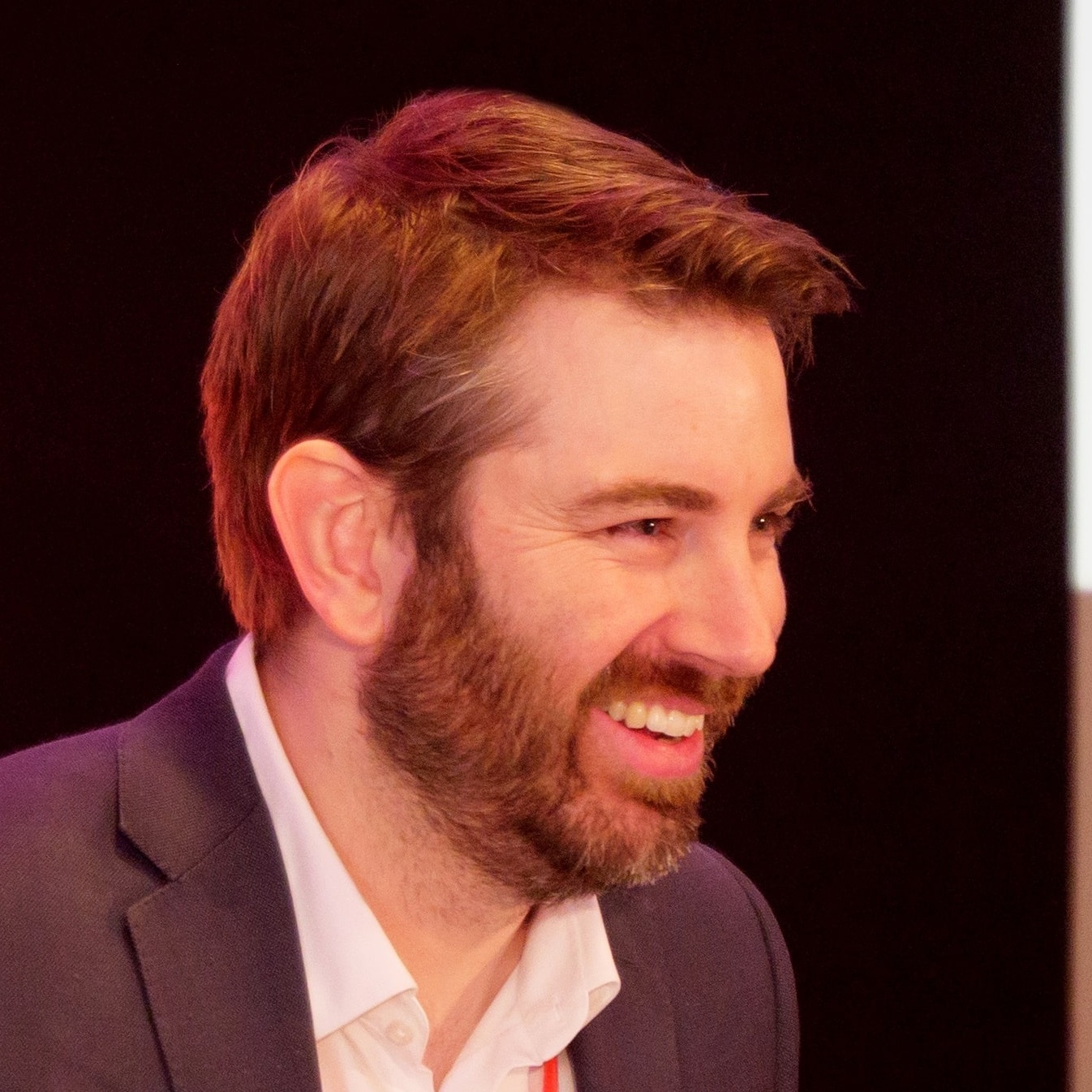
Product Director, Arbor
Ed is a Product Director at Arbor and Co-Founder at Habitude - now part of Arbor - a workflow automation platform for schools that performs everyday work on behalf of your teams so that they can get back to the highest impact work.
Before setting up Habitude, Ed was the CEO of a London based multi-academy trust, having spent the previous ten years working across the Teach First and Teach for All networks, latterly as European Director. He started his career as a secondary school teacher in South London.
As trusts seek to diversify income streams and manage costs, establishing a subsidiary company can offer flexibility and strategic advantages - but there are important legal and regulatory considerations. Join expert lawyers Stone King in this practical session, which will explore the key benefits of forming a subsidiary company, common use cases within the education sector, and the legal frameworks that govern their operation. Whether your trust is actively considering forming a subsidiary or already operates one, this session will provide clarity on the opportunities, risks, and best practice approaches, offering insights into governance structures, trading limitations, and compliance with charity and company law.

Partner, Stone King LLP
In addition to leading Stone King's national Education Sector Group of over 70 lawyers, Roger specialises in school governance and re-organisation (notably for multi academy trusts), school finance, admissions and also all pupil provision issues. A recognised national specialist regarding special educational needs law, Roger also works as a judge in the SEN Tribunal in addition to his role at Stone King.
Roger contributes to the education sector more generally by working closely with national schools’ membership organisations, notably the Confederation of Schools Trusts, the Institute of School Business Leadership and the Co-Operative Schools Network on education developments. Outside work, Roger volunteers as a trustee for a sixth form trust.

Partner, Stone King LLP
Jean is Head of the Employment, HR, Immigration teams and Joint Head of the Education sector at Stone King LLP. With nearly 20 years post qualification experience, Jean is an accomplished employment lawyer who specialises in acting for those in the education sector.

Partner, Stone King LLP
Ciara Campfield is a Partner in Stone King’s Education Team and specialises in advising on the development of joint ventures and multi-partner collaborations comprising local authorities, education and business. Ciara leads the firms commercial and procurement practice for education sector. In addition, she has a particular interest in advising schools and colleges on corporate matters, including mergers, restructures and federations. A core aspect of her work involves advising on the set up of new education institutions (academies and group training organisations offering skills-based learning focused on local area and needs).
In this session, we explore how purposeful, evidence-informed use of digital technology - known as PedTech - can strengthen core teaching practices, support adaptive teaching, and drive whole-school improvement. Grounded in research and built around real-world practice across multiple trusts and school contexts, we will examine how schools can move beyond EdTech towards the strategic, inclusive use of digital tools that help every learner flourish. Attendees will reflect on how PedTech can be meaningfully embedded into school development priorities, and enable leaders to measure and evaluate impact in ways that are both rigorous and relevant to their context.

Digital Transformation Lead, Arthur Terry Learning Partnership
Richard Anderton is the Digital Transformation Lead for the Arthur Terry Learning Partnership (ATLP), a multi academy trust encompassing 24 schools, 12,000 students, and 1,500 staff. Spearheading ‘Learning Futures’, ATLP's equitable 1-2-1 device initiative, Richard has led the deployment and implementation of over 12,000 iPads to students and staff, driving a vision of empowering learning and shaping futures. As a key member of the MAT school improvement team, he also oversees the broader digital strategy, enhancing operational efficiencies and pioneering the organisation's AI strategy.
Designed for trust leaders who are either not yet using Integrated Curriculum and Financial Planning (ICFP) or who want to strengthen their approach, this session will explore the use of ICFP across trusts of different sizes to support strategic decision-making, workforce planning, and long-term sustainability. Drawing on real examples, Julie and Michelle will highlight practical implementation approaches and how they have handled the challenges involved, including the cultural shifts needed to embed the system beyond finance teams. They will speak to their application of ICFP across primary and secondary, its use for early recruitment planning, and for staff redeployment to align with curriculum needs and pupil numbers.

Chief Finance Officer, E-ACT
Julie joined E-ACT as Chief Financial Officer (CFO) having previously held CFO roles at Academies Enterprise Trust, two other mid-size trusts and Teach First.
Julie is an experienced, qualified accountant who spent her early career in senior finance and general management roles in the IT industry. Her combined commercial and education experience provide a sound basis for leading all aspects of the CFO role at E-ACT, and overseeing governance, and procurement.
Julie is committed to making sure trust resources are effectively deployed to provide the best education experience for all E-ACT pupils. She is also a fellow of the Chartered Association of Certified Accountants.

CFO, Learning without Limits Academy Trust
With a strong background in finance and leadership, Michelle brings a wealth of experience in financial planning, budgeting, and risk management. She is dedicated to ensuring the financial health and sustainability of the trust, enabling it to provide high-quality education to all pupils.
Michelle has a proven track record of implementing effective financial controls and an approach which focuses on maximising the impact of financial resources whilst supporting the strategic aims of the trust. Her leadership and expertise have been instrumental in navigating complex financial landscapes and fostering a culture of transparency and accountability.
Michelle collaborates closely with senior leadership, trustees, and other stakeholders to align financial practices with the trust's mission and vision. She is committed to continuous improvement and innovation, leveraging data-driven insights to inform decision-making and improve educational outcomes and enhance financial and operational efficiencies.

Head of Education Strategy, IMP Software
Warren gained his chartered accountancy qualification whilst working at a primary multi academy trust with over 20 schools, before moving on to become CFO at a special/AP trust in Derbyshire.
In his role at IMP, he analyses sector developments and trends, and works closely with customers to ensures that IMP’s financial management tools continually evolve to support smarter trust finance.
In an era marked by increasing misinformation, polarisation and uncertainty, how can we equip our teachers and students to flourish? This workshop will explore how we can teach learners to respond with curiosity, care and critical insight to the digital content and algorithms shaping their world views, emotions and sense of self. Drawing on findings from Lyfta’s nationwide roundtable series, we will explore the emerging challenges and opportunities for trust-wide culture and curriculum development. Trust leaders will share practical, future-focused examples of approaches that are making a difference. Expect thoughtful discussion, inspiring stories and actionable strategies for meaningful, trust-wide impact.

CEO, Lyfta
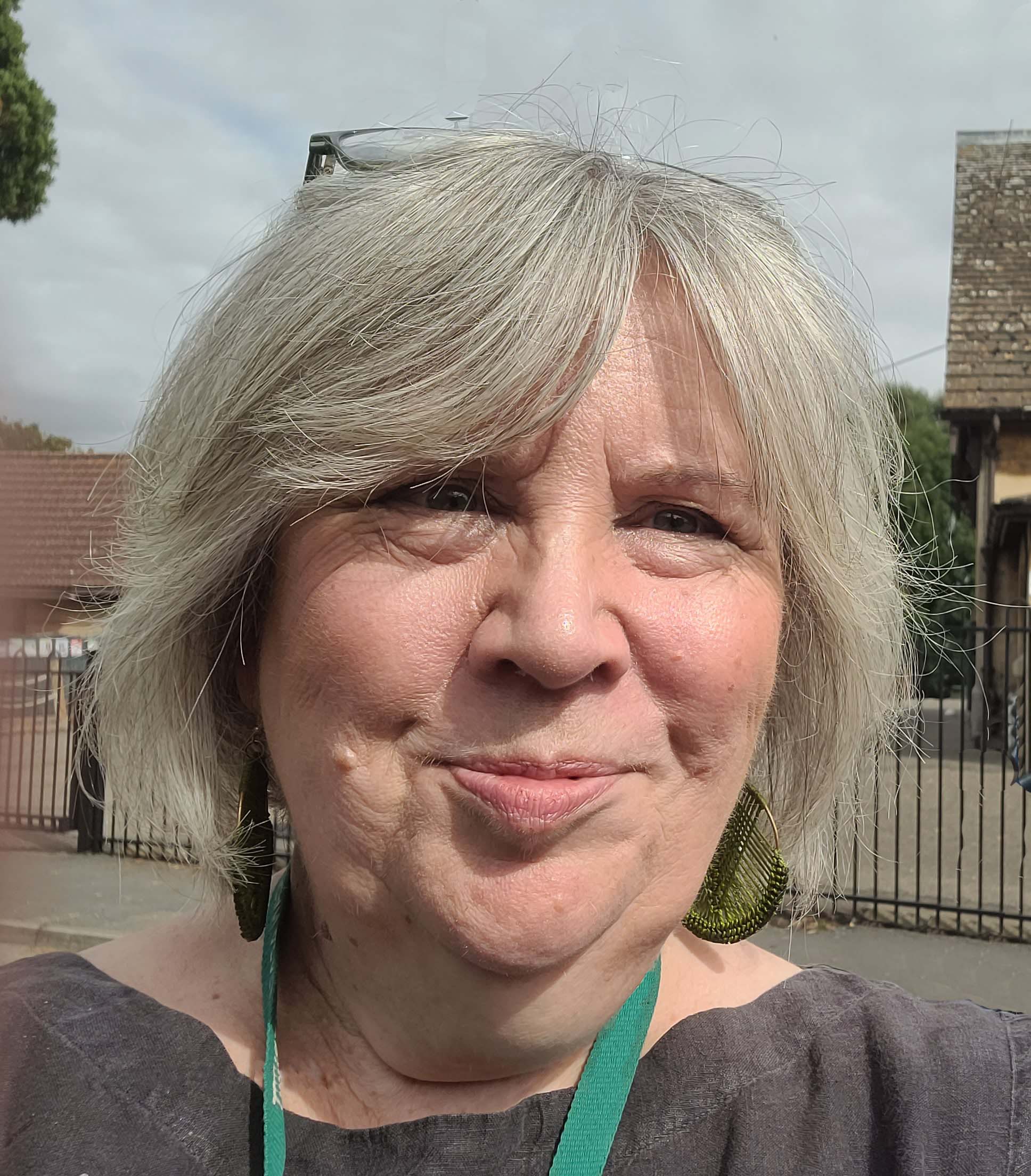
CEO, Lincoln Anglican Academy Trust
Jackie Waters-Dewhurst moved to Lincolnshire in 2011. And as part of her role as Diocesan Director of Education, set up The Lincoln Anglican Academy Trust which has since grown to 23 schools many serving coastal, urban and rural deprived areas. In 2023, she set up the Love As Action Together fund supporting pupils whose barriers to learning were caused by poverty, giving away over £16,000 in the first year.
Prior to Lincoln, Jackie led the Bristol diocesan education team, chaired North Somerset Schools Forum and was chair of governors for a special school which achieved outstanding Ofsted judgements for it's equity driven work on enterprise and the academic outcomes of pupils. Equity has driven Jackie's career which, both through paid and voluntary work, has enabled her to provide opportunities for those who are often unable to access the variety of experiences which many take for granted.
"A good leader doesn't create followers, they create more leaders”. How true is this in our sector? In this session our expert panel will explore the skills and qualities that the next generation of trust CEOs will need as our sector continues to mature. They will consider what the new context for school trusts will require of its leaders, and ask what serving CEOs and chairs of trustees can do to identify and develop a healthy pipeline of future CEOs so that individuals, organisations, and the wider trust system can flourish.

Executive Director of Education, The Church of England Education Office

CEO, Ambition Institute
Hilary is the CEO of Ambition Institute, and has previously held senior roles in education policy, professional development, and equalities. As a charity, Ambition Institute’s focus is on tackling educational inequality. Since March 2019, Ambition has worked with over 100,000 teachers, and with more than half of all schools in the country. The organisation supports teachers and leaders across their careers with high quality, evidence-based professional development, from initial teacher training to trust leadership. As well as a wide range of professional development programmes, Ambition delivers innovative pilot initiatives, a portfolio of robust research, and wider sector engagement to support equality. SEND and inclusion are long-standing priorities for Ambition, and the team is pleased to have worked with CST on publications like Five principles for inclusion, and convening the Inclusion in Practice hub.
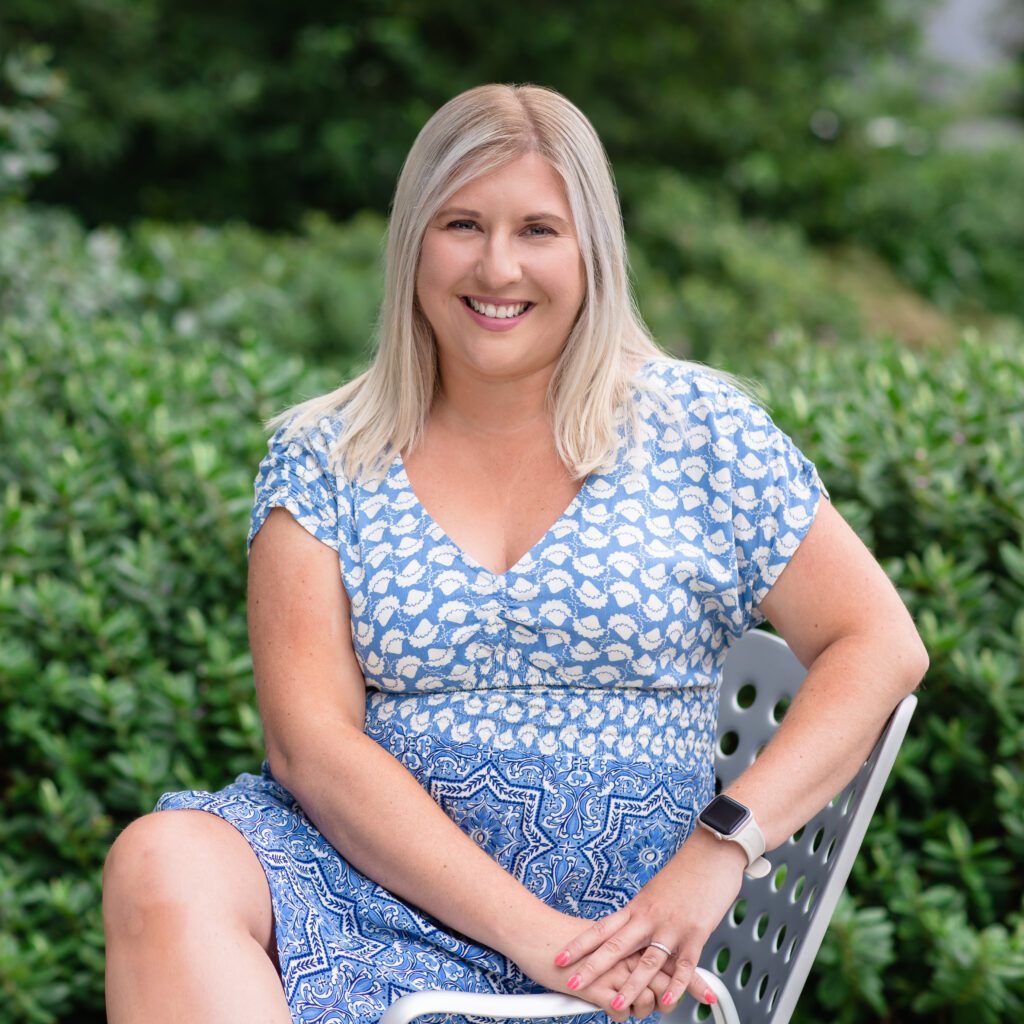
Partner, Anderson Quigley
Hayley has supported the education sector for the last 10 years, providing executive search and interim and consultancy solutions to school trusts, independent schools, FE colleges, and universities. Her speciality is understanding the education sector and connecting talent that is passionate about providing high quality inclusive education. Hayley has built a track record with education leaders and helped many organisations identifying top talent.
Hayley has a passion for education, she is a governor for school trust working closely with the head and trust leaders to ensure excellent levels of education. She previously worked closely with England Rugby Schools to deliver inclusive sport in schools and has strong understanding of the curriculum.
Hayley joined the Anderson Quigley team to further develop the schools and colleges practice and is driven by making a positive difference to the education sector through the quality of leadership appointment.
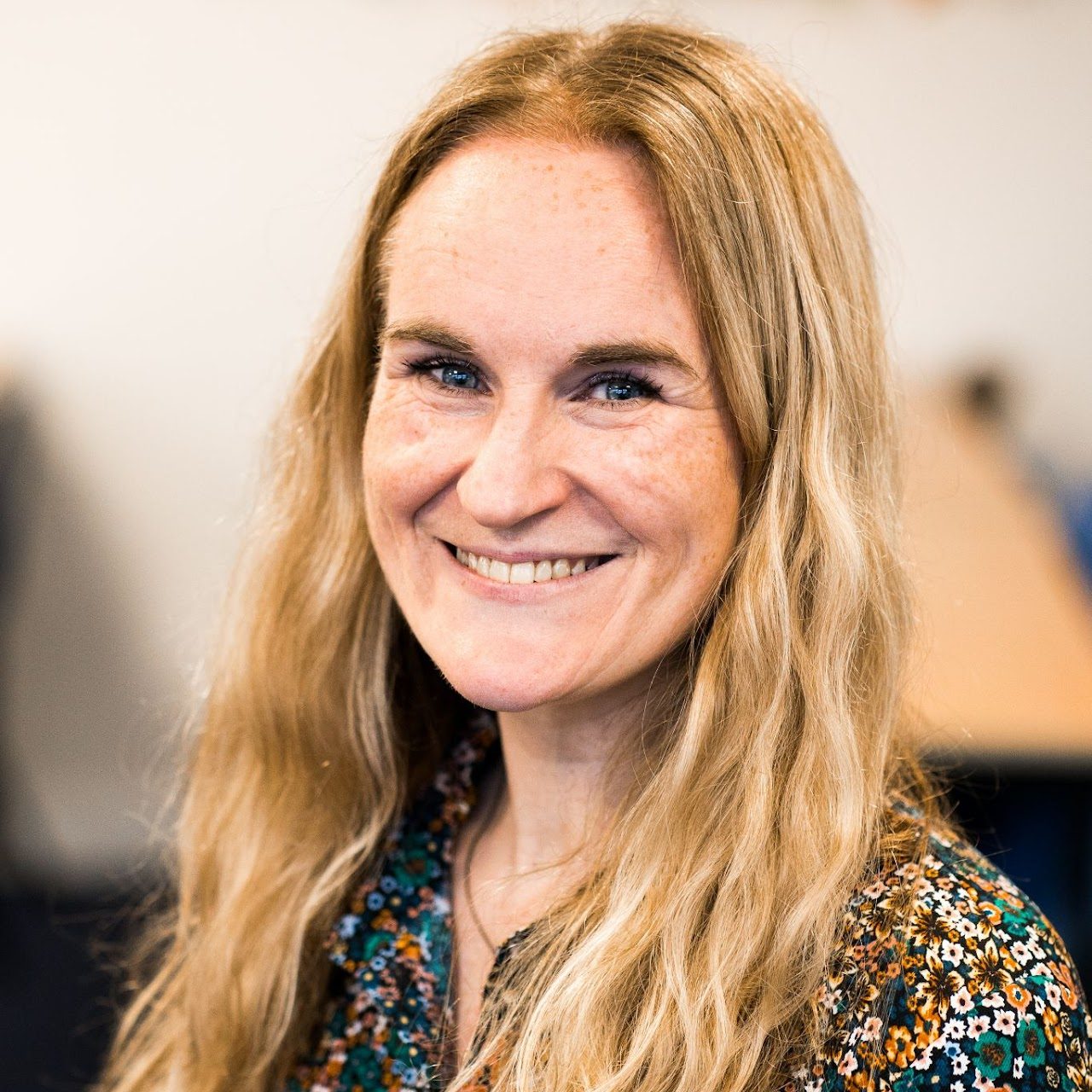
CEO, Kernow Learning Multi Academy Trust
Clare is an experienced, successful educational leader, having been involved in academies and school trusts since 2010. Prior to her appointment as Kernow Learning CEO in April 2022, she was a headteacher of an outstanding school (Trenance Learning Academy), executive headteacher of two schools, a national leader of education, regional school improver and the Deputy CEO of Kernow Learning.
Clare has been instrumental in establishing the OneCornwall Teaching School Hub, Kernow English Hub and enabling a successful bid for Kernow Learning to become jointly designated as one of the Regional Associate Research Schools for the Education Endowment Foundation (EEF).
Throughout her professional career, Clare has made the quality of education and outcomes for the children her focus. She believes that the sharing of best practice is an important strand in the shaping of the new national educational landscape and that the strong, clear systems of governance at Kernow Learning are key to the trust continuing to go from strength to strength.
In this session, we'll hear real-life practical examples of how Infinity Academies Trust and Ted Wragg Trust have led meaningful change by listening deeply to their staff. We'll learn about their use of listening tools to turn feedback into co-created initiatives - from overhauling appraisal systems, and shaping people development programmes, to codifying values into everyday behaviours. You'll gain insight into their approaches and challenges in creating environments where people feel heard, valued, and supported, strengthening trust-wide culture.

CEO, Infinity Academies Trust
Gavin is the founding CEO of Infinity Academies Trust, a growing family of Greater Lincolnshire-based Church and community primary schools. Gavin has over 20 years’ experience in primary leadership and has also worked for the local authority leading on education strategy and working with schools experiencing difficulties.
Under Gavin’s leadership, Infinity has supported schools to become the heart of their local communities, with a strong track record of improving outcomes and opportunities for pupils and colleagues and ensuring that everyone is ready to learn and prepared to flourish. Infinity consistently ranks highly for staff perceptions and recently received two awards for staff wellbeing and engagement.

Executive Director, People, Infrastructure & Innovations, Ted Wragg Trust
Tamsin has combined the skills and experience from a career in primary leadership and then in business and operations in secondary schools to now lead on operations and innovations at the Ted Wragg Trust. She loves working with leaders in education to create organisational cultures where staff feel valued, included and empowered to transform lives and strengthen communities to make the world a better place. Growing up in Torbay and having lived most of her life across the region of Devon and Cornwall she is passionate about making the South West the best place in the country to go to school and to go on to have a life of opportunity.

Managing Director, Edurio
Iona runs the insights team at Edurio, responsible for the creation of new surveys and analysis of the national datasets on staff, pupil and parent experience. Since joining Edurio in 2021, Iona has worked on national reports focused on topics such as equality, diversity and inclusion and staff retention. Iona brings over 10 years of research experience, previously working in fields from technology, to food waste, to finance.
Sir Ian Bauckham will share Ofqual’s perspectives on the future of assessment.

Chief Regulator, Ofqual
Sir Ian Bauckham was appointed Chief Regulator at Ofqual in January 2024, following his service as Chair of the Ofqual Board from 2021 and as a board member since 2018. He brings extensive experience in education leadership, having previously led a multi-academy trust and served as a headteacher. Sir Ian has contributed significantly to national education policy, including reforms in initial teacher training, relationships and sex education, and modern foreign languages. He was President of the Association of School and College Leaders (ASCL) in 2013–14.
He holds degrees in modern and medieval languages from the University of Cambridge, in education from UCL, and philosophy from the University of London. His contributions to education were recognised with a CBE in 2017 and a knighthood in the 2023 New Year Honours.
In addition to his role at Ofqual, Sir Ian is Chair of Oak National Academy, an arm’s length body of the Department for Education that supports schools with online curriculum and lesson resources.

Deputy Chief Executive, CST
Steve Rollett is Deputy Chief Executive of the Confederation of School Trusts (CST), the national organisation and sector body for school trusts in England. Before joining CST, he was Curriculum and Inspection Specialist for the Association of School and College Leaders. Steve has sat on a range of advisory bodies, including Ofsted’s curriculum advisory group. Most recently he has supported Oak National Academy and the Department for Education’s remote learning advisory group. Originally trained as a history teacher, Steve was a vice principal of one of England’s most improved secondary schools before moving into a career in education policy.
The DfE’s new standards embody a shift in the government’s approach to improving the condition, safety, suitability, and sustainability of school estates across England. This session will provide an expert analysis of the new guidance and the implications for school trusts. We’ll hear how trusts align standards with broader policy goals and funding expectations to create a successful and resilient estates strategy. Most importantly, we’ll translate policy into practice. Attendees will gain a clear understanding of what the new standards require, practical tools for assessing current compliance, and strategic advice on aligning estate management with educational outcomes, financial planning, and sustainability goals.

Head of Estates & Assets, Tove Learning Trust
James has worked in estates and facilities management for over 20 years in the education and commercial sector. Originally from an health and safety background, James also has a strong background in assets and facilities management.
James currently manages multiple sites within Tove Learning Trust, as well as running a support service for academy schools, EDU FM, offering support in estates, health and safety and compliance. He is passionate about sustainability, asset management, health and safety and CAFM systems, with the focus on delivering excellent service of facilities management within the education environment and professionalising the industry standard in the sector.

Partner, Barker Associates
Robert is a Fellow of the Royal Institution of Chartered Surveyors and a Partner at Barker heading up their education sector. He works with academies, trusts and colleges to deliver capital projects and surveying services including condition surveying and estate planning. He also assists education clients in applying for capital funding and advises on energy efficiency strategies.

Associate Partner, Barker Associates
Matt Isherwood is an Associate Partner at Barker following 14 years at Brooke Weston Trust as Director of Estates. He has been a long-standing and strong advocate for best practice on good estates management, energy, sustainability, and use of data-driven decision making. Matt has enormous knowledge and experience of estates management from the client side and is now working with Barker to promote this knowledge to the wider education sector.
Is your internal scrutiny programme compliance-driven, problem-focused, or disconnected from your strategic priorities? This interactive session will explore how to transform internal scrutiny into a forward-looking, risk-informed tool that supports continuous improvement. Join our speakers for a discussion around how to align scrutiny with future risks and opportunities, foster a culture of psychological safety, and overcome common barriers through shared real-life experiences.

Risk Assurance Director, RSM

Director of Finance/CFO, Creative Education Trust
Catherine is Community Chair for CST's Finance professional community and is excited to help trust colleagues benefit from the collaboration and support provided by the community.
Catherine is passionate about providing an excellent education for children and developing strong teams to deliver a high-quality financial service for schools. An experienced chartered accountant and member of the executive team, Catherine is Chief Financial Officer for Creative Education Trust.

Partner, RSM
AI and edtech are reshaping education, and strategic leadership is critical to ensure innovation delivers real impact. This session explores how school and trust leaders can drive positive futures through ethical, scalable use of digital technologies. We’ll examine key decisions around investment, assessment, curriculum, and workforce readiness in an AI-driven world. Drawing on Pearson’s national and global insights, the session offers practical guidance to align innovation with trust-wide goals to support excellence, equity, and integrity.

Product Director, Pearson
Les has over 19 years' experience working with educators, technologists and academics to produce market leading learning solutions. His roles have taken him from discussing fossils with school groups on the Jurassic Coast to developing new digital technologies that help deliver learning and assessment to schools across the world. He is passionate about the power of education to change lives, and the potential that technology offers to support a high-quality education. Les currently works as Product Director for Pearson Schools UK, leading product strategy, research, development, and management for digital, qualifications, and publishing.

Chief Transformation Officer, United Learning Trust
Lauren is the Chief Transformation Officer at United Learning, the largest trust in England. She leads the trust’s work on digital strategy, data and insights, curriculum and assessment, as well as the programme of transformation projects across the organisation. Prior to this, Lauren was the Director of Standards & Performance and Director of Strategy at Ark Schools. Earlier in her career Lauren led a secondary free school to its first good from Ofsted as principal, has taught computer science and IT in a range of schools, and was a research director for a thinktank in Westminster. Lauren holds an undergraduate degree in Computer Science, a master’s degree in ICT in Education, she has sat on the DfE Ed Tech Advisory Board and Workload Review Panel, and is a serving Ofsted inspector. During the academic year 2024-25, Lauren is Chair of the CST Data and insights professional community.

Head of Maths, Pearson
Lucy Chowns drives innovation as the head of a product team for Pearson’s UK Schools, specialising in maths qualifications and resources. With nearly 20 years of experience, she is at the forefront of digital learning and assessment, passionately leading Pearson’s research on how digital tools and technology can revolutionise teaching, learning and assessment. Her mission is to harness the transformative power of technology to enhance educational outcomes.
The unprecedented number of pupils with SEND is prompting some trust leaders to re-evaluate their approach to Initial Teacher Training (ITT). In this session, we'll hear how The Gallery Trust, comprising of seven schools offering specialist and alternative provision, has developed a tailored ITT programme and its impact so far. Designed in-house and rooted in specialist expertise, the programme embeds SEND training throughout, with the aim of better preparing future specialist teachers and strengthening mainstream provision. You'll gain practical ideas and strategies to help adapt ITT towards a more inclusive and responsive education system.

Deputy Chief Executive, The Gallery Trust
Harry Paget-Wall Collins is the Deputy CEO of The Gallery Trust, a multi academy trust specialising in SEND across Oxfordshire. Harry began her career in mainstream education, holding senior leadership roles including headteacher and executive principal in both primary and secondary settings. Her commitment to providing high-quality education for society’s most vulnerable learners led her to transition into the specialist sector, where she served as director of education and strategy. In her current role, Harry leads the trust’s people strategy, with a focus on developing strong leadership and teaching to drive school improvement and deliver excellence across the organisation.

Director, Supporting Education Group
Penny Swain has over 30 years' experience in the education sector, previously working as a teacher and now as a multi academy trust trustee and in the private sector. At Supporting Education Group, Penny offers practical strategies to address workforce and staffing challenges facing schools today. She draws on insights from both education and other sectors to provide innovative solutions, helping senior leaders navigate modern workforce realities and improve operational efficiency.
How can we create a joyful school experience grounded in belonging, purpose, and connection? This session explores a mentoring model involving pupils in year 10 who, through shared values and identity work, support their younger peers in year 8. We’ll examine how this approach empowers disengaged students to become school ambassadors, encouraging leadership and empathy through relational practice. Reflections from mentors, mentees, and school leaders will offer honest insights into the potential and challenges of this work, and the impacts it has had. Together, we’ll consider how these practices can shape more inclusive, purposeful school communities.

Founding Director, Humanutopia
Graham is the founding director of Humanutopia, and has over 30 years’ experience of working with over 500,000 young people and 50,000 teachers across the world. Graham was a hugely successful teacher for 13 years in a tough Merseyside school. He has a deep and empathic understanding of teaching, education, schools and young people.
He has an inspirational story and continues to work with and empower even the hardest to reach. He is a highly regarded speaker and authority on improving wellbeing for students and staff. He has successfully delivered hundreds of teacher events from keynotes and twilights to full day inset training days.
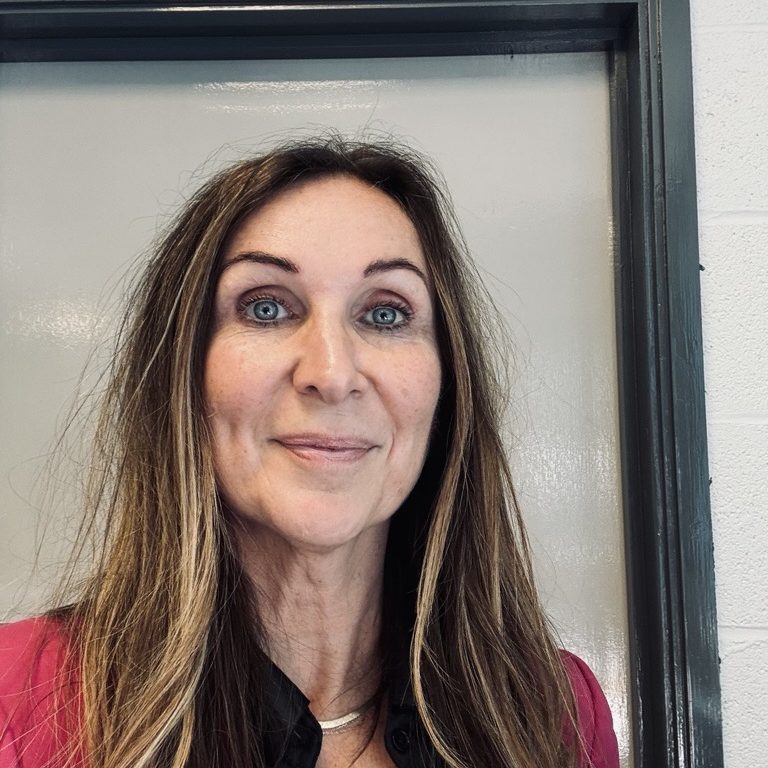
School and College Trust Leader, Dixons Academies Trust
Rachael Fidler is a School and College Trust Leader at Dixons Academies Trust. She has worked as a principal in a successful turnaround school, a vice principal leading on outcomes and an specialist leader in education improving regional and national standards in modern foreign languages. She has spoken on national platforms on attendance and delivered CPD on crafting culture and raising standards in secondary schools and implemented a trust wide programme to embed indoor rowing in partnership with British Rowing at Dixons which is in line with her motivation to challenge educational and social disadvantage in the north in all aspects.
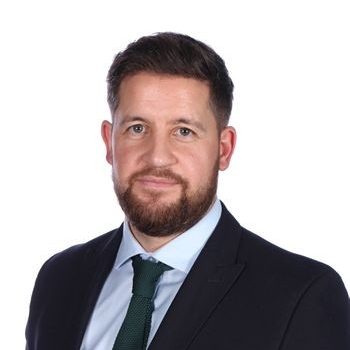
Assistant Principal – Behaviour & Culture, Dixons
Antony Gallagher is Assistant Principal for Behaviour and Culture at Dixons Fazakerley Academy. He has over 18 years of teaching experience, moving through roles as head of subject and head of faculty before spending the past decade in pastoral leadership, including positions as head of year and head of key stage. He was recently appointed to his current role, leading on behaviour and culture at Dixons Fazakerley Academy.
With rising costs and tightening budgets, some trusts are exploring GAG pooling as a way to build financial resilience and ensure equity across their academies. In this session, trust leaders will share their respective approaches – from equalising pension rates and centralising services, to using pooled reserves to support vulnerable schools and invest in shared priorities. We’ll discuss practical insights into how it works for them, the benefits it has the potential to unlock, and how to manage the cultural and leadership challenges along the way. Whether you are considering GAG pooling or looking to refine your existing approach, this session will help you think strategically and act confidently.

Chief Finance & Operations Officer, Discovery Schools Academies Trust
Steve Orton is a qualified chartered accountant and currently serves as Chief Finance and Operations Officer for Discovery Trust, a position he has held since September 2023. He has worked within multi-academy trusts for over 10 years and brings more than 20 years of post-qualification experience in the education and charities sector, with a strong focus on financial leadership and operational excellence.
In addition to his executive role, Steve is Chair of the Risk and Audit Committee at Learn Academies Trust and serves as a governor at Bingham Primary School. He is a passionate advocate for the transformative power of education and is deeply committed to values that promote equity, opportunity, and excellence.

CEO, REAch2 Academy Trust

Co-Founder, IMP Software
Will Jordan FCCA has worked with academies and multi academy trusts since the first ‘phase two’ academies opened in September 2010. As a qualified accountant and financial technology specialist, Will now works with established multi academy trusts to strengthen their financial planning and reporting processes by replacing legacy software with multi academy trust-specific, agile tools.
In recent research led by IRIS Education, over four fifths of education leaders cited budget constraints as a core challenge. This session will provide practical strategies and real-world insights into how to operate more efficiently, gain greater financial visibility, and help future-proof your trust’s success. Aimed at small to mid-size trusts, and those with ambition to grow – trust leaders will walk away with actionable takeaways to drive capacity, improve efficiency, and create the conditions where schools, and their pupils, can flourish.

Managing Director, IRIS Education
Simon is responsible for driving forward IRIS’ evolution, leading the education offering and focusing on meeting the needs of senior leadership teams in multi-academy trusts.
Prior to IRIS, Simon began his career as an engineer, quickly taking on strategic roles across BT, moving around its leadership programme. He later moved to services specialist Serco where he was COO of the Ministry of Defence’s Business Services division. Most recently he was the MD of Capita’s local government business, where his role was to enable local government clients to deliver effectively for the many hundreds of thousands of residents they served.

CEO, ISBL

CEO, Honeycomb Education Trust
Jim started his teaching career in Stockport in a primary school in 1991 and he quickly established a position as a subject leader for a variety of subjects, and head of pastoral care in the early 1990s. During his early teaching career, he worked regularly with the local authority on the development of curriculum planning, assessment, providing professional development for teachers and support for SEND pupils and those who are in danger of falling behind. Jim worked with Edexcel on the advisory group for maths SATs; the NFER for Science tests at KS2 and the national numeracy strategy in its construction stage.
Jim was appointed as headteacher at Mellor in 2007. He was instrumental in establishing the first primary academy in Stockport in 2011. Jim worked with governors developing a case for change and engaging the local community, demonstrating the benefits of establishing Mellor academy. After working as a Director of School at Mellor for almost 15 years, Jim was appointed CEO of Honeycomb Education Trust in February 2025. The Honeycomb Education Trust was officially launched as a school trust with two primary schools (Mellor Primary and Bolshaw Primary) after a period of working together in successful partnership.
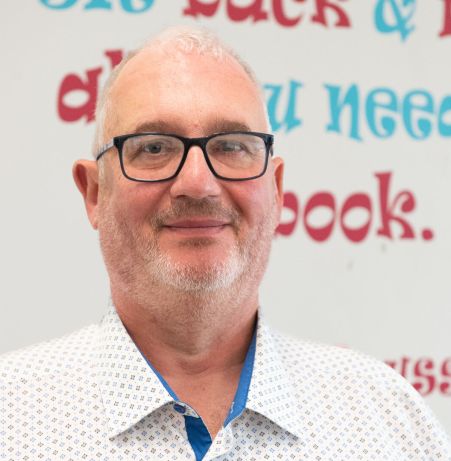
Chief Operating Officer, East Midlands Academy Trust
I joined the Trust in January 2018 and am proud of the way we have developed with a focus on delivering an inclusive education to all no matter what background or ability. We are dedicated to all within our trust from the students we serve to the staff working with us to ensure we all can be the best that we can be and have a commitment to lifelong learning.
I have developed my knowledge over a 45-year period and have a successful track record of business transformation in the private sector, higher education and central government. I have worked in the academy sector for the last 10 years using my knowledge and experience to support our #EMATter community. I provide advice and support to the wider sector through being a school resource management adviser on behalf of the DfE, I chair the local Schools Forum and am a member of the LGPS pensions committee.
How we tell our story as a trust is as important as the story itself. Compelling narratives can shape identity, build trust and align your community around a shared vision for success. This session will explore how harnessing the power of storytelling can support strategic objectives - from stakeholder engagement and growth to cultural cohesion and reputation management. Tiff and Nick will illustrate how a clear and consistent narrative is key to flourishing as a trust. You’ll have the opportunity to consider the how and why behind the stories you want to be telling, to achieve growth (in every sense as an organisation), strengthen reputations, and enhance stakeholder relationships.

Head of Education, PLMR
As PLMR’s Head of Education, Tiffany provides expert strategic advice and support in reputation management and crisis communications, PR and media relations, public affairs and wider communications disciplines to school trusts and maintained schools; early years, further and higher education institutions; charities; sector bodies; edtech companies and organisations across the education sphere. She is also Chair of Trustees at Maritime Academy Trust, where she has obtained in-depth understanding of issues and challenges facing schools and trusts around the country. She was made an OBE for services to education in the King’s New Year Honours List 2024.

Chief Executive, Maritime Academy Trust
Nick Osborne is the Chief Executive Officer of Maritime Academy Trust, a multi academy trust focused on giving every child an excellent start in life. With over 25 years in education leadership, Nick founded Maritime in 2016 and has helped grow it into a values-led trust known for its creativity, collaboration and commitment to inclusion.
He also serves as Chair of Trustees at Woodland Academy Trust and is a founding trustee of Maritime’s children’s charity, reflecting his deep commitment to improving life chances for young people beyond the classroom.
Nick is a passionate advocate for equity in education and is never shy of asking the awkward-but-important questions. Known for his approachable leadership style and dry sense of humour, he somehow balances strategic vision with the day-to-day demands of being a parent to three teenagers, which means he’s no stranger to negotiations, eye-rolls or mysteriously empty fridges.
This session explores how schools are engaging with parents to forge effective partnership in children's education. Speakers from Eko Trust and Big Education Trust will share their approaches to building inclusive, community-rooted relationships with families. Nicola Noble will reflect on Surrey Square Primary School’s Old Kent Road Family Zone project and its impact on local engagement, and Rebekah Iiyambo will highlight in-depth work with parents and carers to foster a deep sense of belonging through an inclusive and active listening approach. You’ll leave with grounded insights and practical ideas to consider and adapt in your own school communities.

CEO, Eko Trust
As well as being CEO of Eko Trust, Rebekah provides high quality school improvement work to a range of schools and trusts.
Previously, Rebekah has been a headteacher, co-headteacher, deputy headteacher, and an advisor for science, early years and English as an additional language in two local authorities before becoming a senior advisor for continuing professional development (CPD). This role included specific responsibility for developing leadership capacity across primary, secondary and special schools. She has also taught in schools in Britain and Namibia.

Managing Director, Edurio
Iona runs the insights team at Edurio, responsible for the creation of new surveys and analysis of the national datasets on staff, pupil and parent experience. Since joining Edurio in 2021, Iona has worked on national reports focused on topics such as equality, diversity and inclusion and staff retention. Iona brings over 10 years of research experience, previously working in fields from technology, to food waste, to finance.

Deputy CEO, Big Education Trust
Nicola worked at Surrey Square Primary School, part of the Big Education Trust, from 2006 until July 2025. At Surrey Square, a different vision for education came to life through their ‘more than a school’ approach—working from the core (with a focus on wellbeing, relationships, skills and values) to help the community thrive and build a better world. Now Deputy CEO of Big Education Trust, Nicola continues to shape and lead work across the organisation. Passionate about wellbeing, shaped by her own life experiences, she leads initiatives that support staff, pupils, families, and the wider community, including as part of the team that founded the Old Kent Road Family Zone. She believes in developing capacity and has coached and trained extensively in leadership. Nicola balances her work with life as a mum to three amazing children.